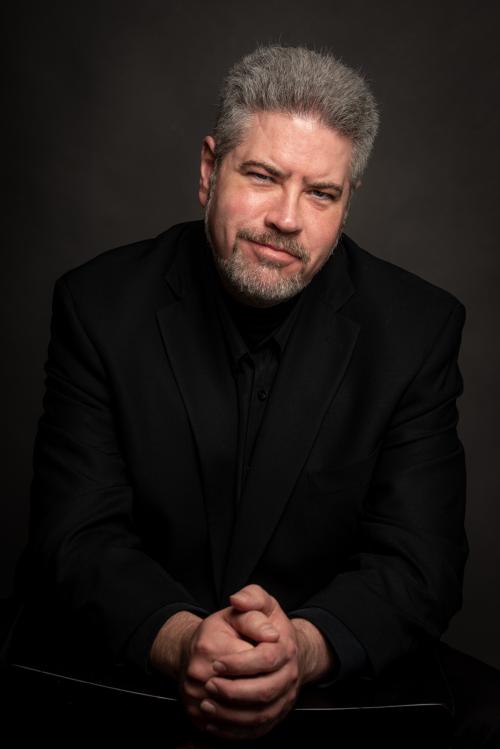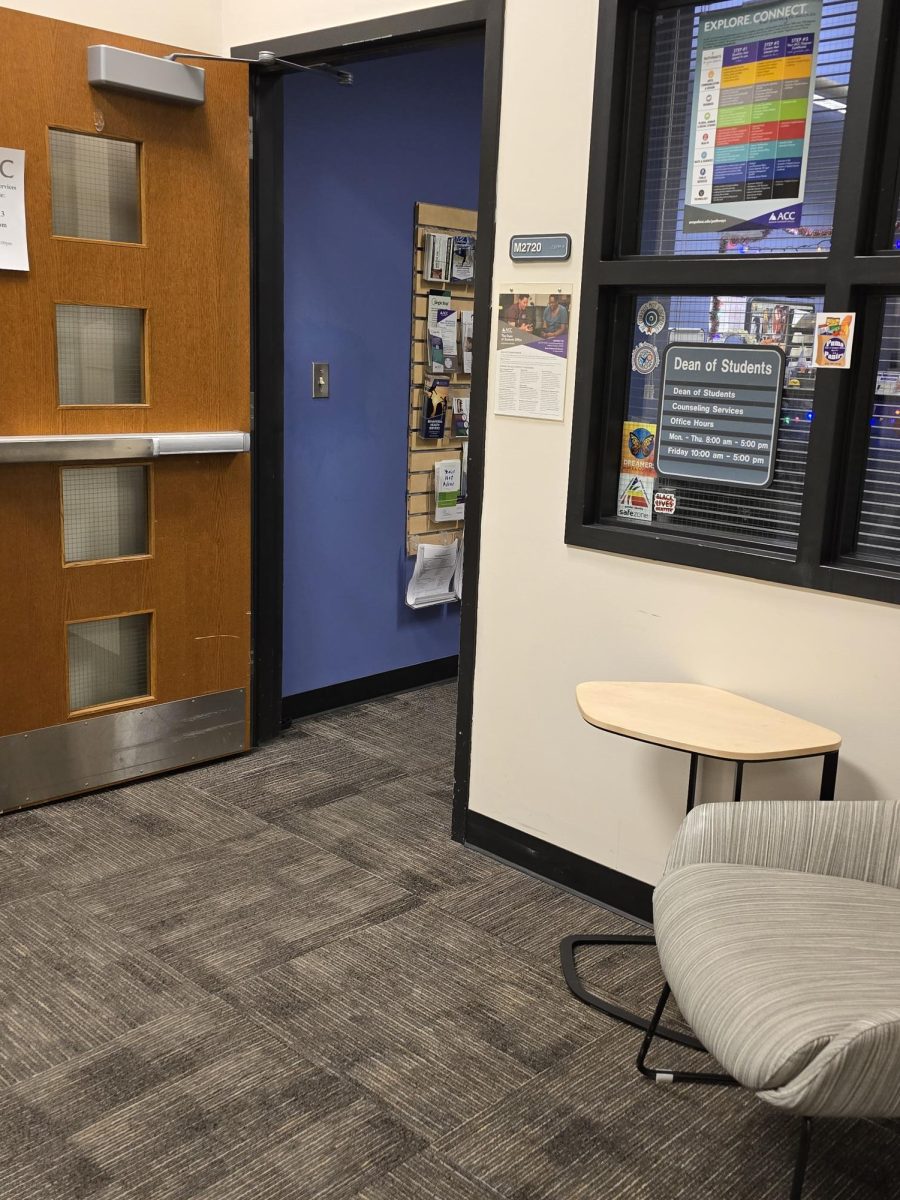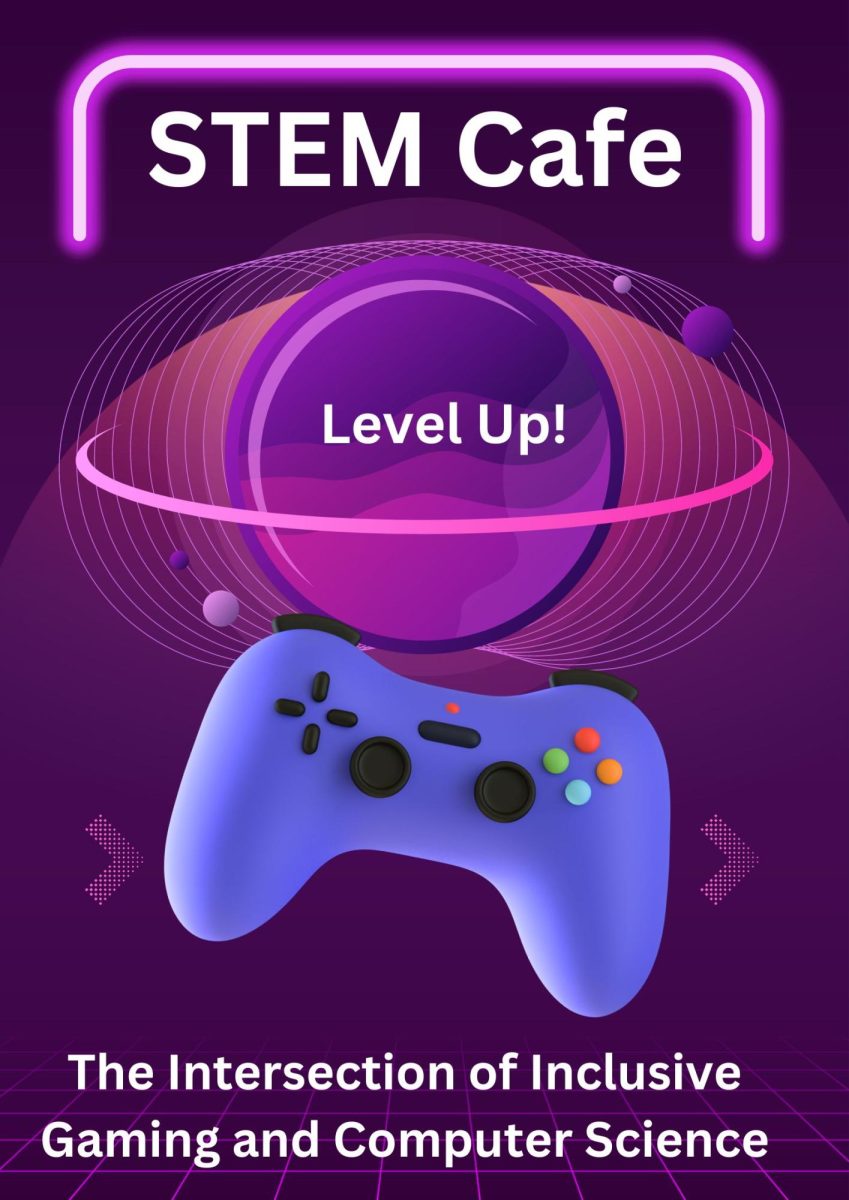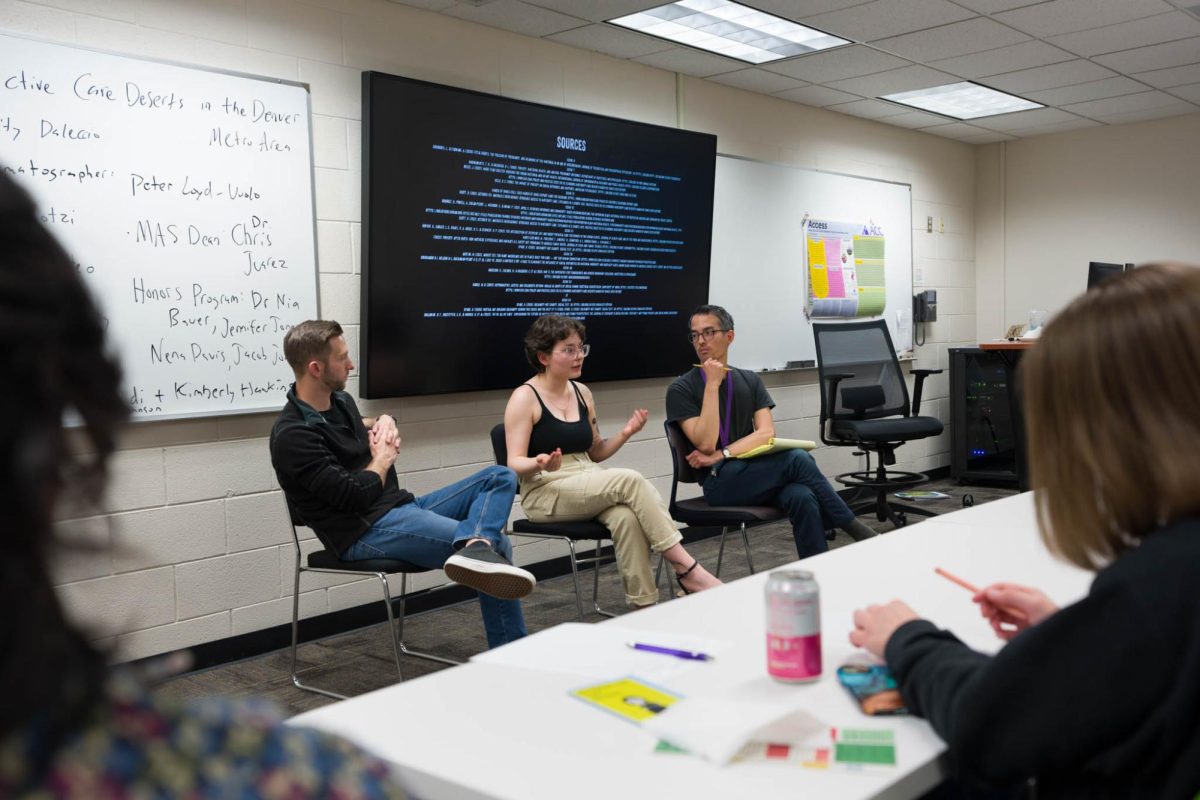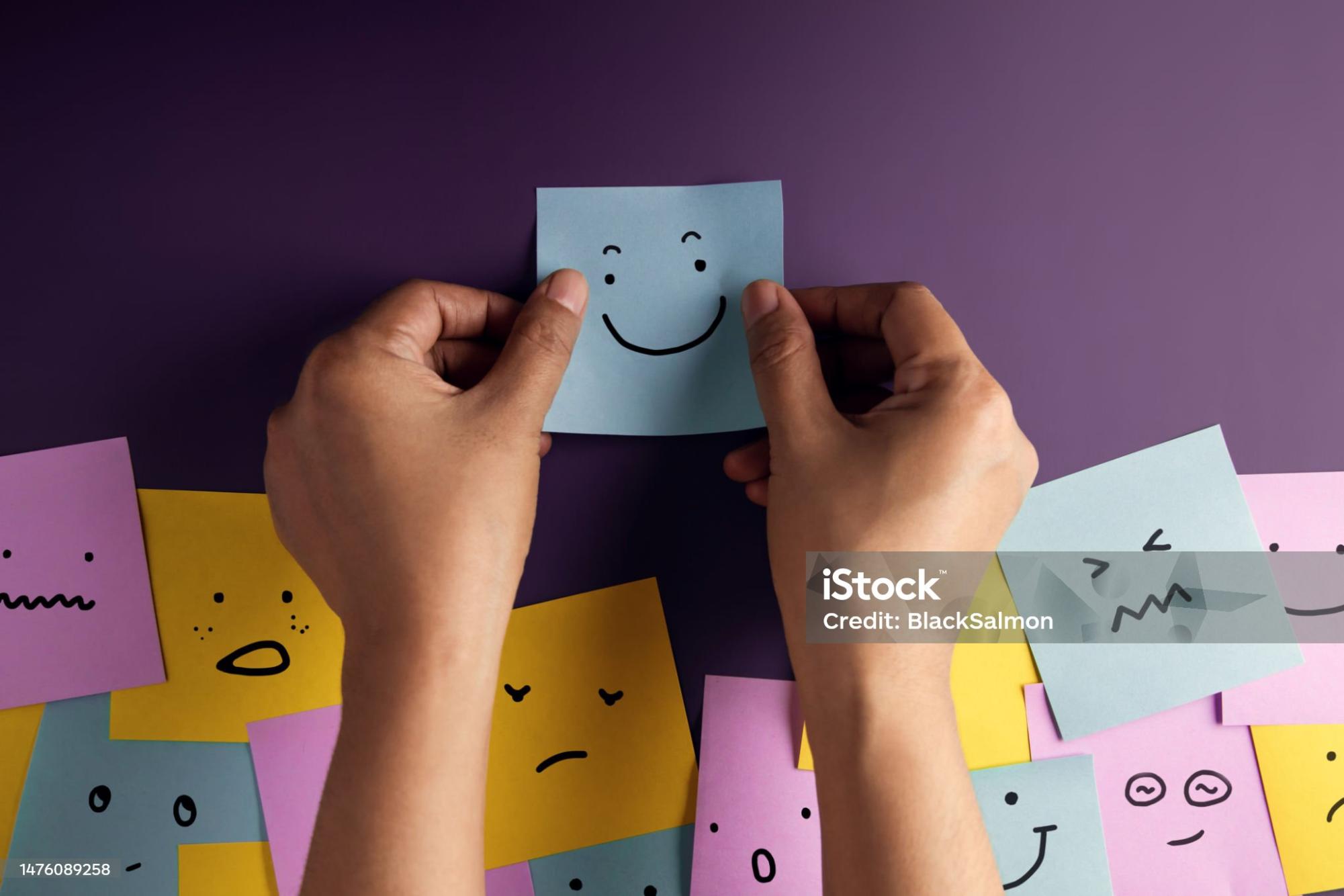
Your 2023 Finals and Holiday Season Mental Health Guide
Did you know that ACC offers students eight free counseling meetings per semester? Mental health is a top priority here at ACC, and with finals and the holiday season looming, now is the time to check in on what might be holding you down. Psychology program chair Allison Hagood and school counselor Christopher St. John are here to answer students’ most pressing questions of how keep a peace of mind during this trying time of year.
Hagood: We’re wrapping up the semester, so students who have experienced difficulty in an early part of the semester are sometimes feeling behind and stressing out about whether they’re going to be successful in their classes. Many of our students are having to work either part-time or full-time while going to school, and while trying to balance a social life and sleep. There are sometimes unrealistic messages we give our students that they can be a full-time student and a full-time worker and have a life outside of that. I think our some of messaging as a community college may inappropriately increase stress for students because we’re communicating an unrealistic idea of what students can do when they have these other obligations outside of school, so I am always trying to help students understand what’s realistic for them.
St. John: School is the number one thing, but there’s also seasonal affective disorder. There’s shorter days, less sunlight, that affects people. The holidays affect people as well, for better or for worse. Even if something is positive, it’s still impactful and there’s still going to be stress involved. It doesn’t always have to have a negative connotation to it. It’s all of these things that hit at the same time and I don’t think people realize that until maybe they come in for counseling and take a breath and realize some of these things. Not even to mention the day-to-day grind or if somebody’s employed, or relationships, family, friends, etc. You sit down and start to run through all of these things and you realize that it’s a lot, and of course the pressures of school on top of all of that.
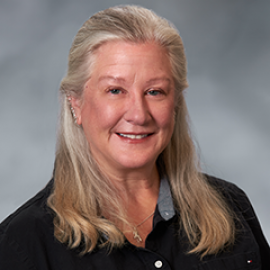
Hagood: One of the benefits of living in Colorado is the amount of sunlight we have. We don’t have as many hours of sunshine in the winter, but the amount of sunshine as opposed to cloudy days we have in Colorado is helpful to people who might struggle with seasonal affective disorder. [Living in Colorado] it may snow, but then the next day the roads dry and it’s sunny again. This is not my area of specialty, but I would suspect that the rates of seasonal affective disorder are lower in Colorado compared to other parts of the country. So that is a benefit that we have even though people here may still be affected by seasonal affective disorder.
St. John: Try to get out to the sun as much as possible when it’s available. Exercise, proper diet, hydration. Being social to some degree. We tend to isolate more during these times, so just getting out and doing something socially. Journaling about what you are experiencing sometimes to conquer that experience. Sometimes it helps to get it out of your head and down on paper. Just something to get it out. UV lights for the home are really popular as well. Leaning on healthy coping mechanisms. This is not about sucking it up or powering through, that doesn’t do anything.
Hagood: I’m always trying to tell students: “Just get your thoughts out of your head.” Just vomit out what you’re thinking in some form and then walk away from it, and come back and do the editing. It’s unrealistic to think that in one sitting you can write the perfect paper. The best approach is to just do something and then come back to it later and do the polishing. Take 3o minutes and open a file on your smarphone or laptop and put your thoughts out of your head. Then you can come back to them and see how they fit and see how you can arrange them. Do small bits of things more frequently rather than thinking that the only way you can do schoolwork is by setting aside hours at a time to complete everything.
St. John: Having conciousness towards why you’re procrastinating helps. For some people it’s that they enjoy that rush or that they work well under pressure. If that’s what works for you, great. It’s when it becomes an impediment to you, when the anxiety gets so bad that it’s affecting someone negatively. Maybe they start leaning on unhealthy coping mechanisms, substance abuse or something like that to help them get through. That’s when it has gone too far. There’s a balance in it. If you can maintain in procrastinating and still do what you need to, run with it. But after a while if you start missing deadlines and it’s impacting you in a negative way then it needs to be tweaked.
Hagood: One of the suggestions I give students is don’t wait until you feel like studying because you’ll never feel like studying. Schedule into your day times to do that. Do you go to work when you feel like it or do you have a schedule? Nobody feels like going to work but they go to work because they have a schedule. Especially if you have times when you know you have to take care of your children, or times when you know you have to go to work, or times where you are maybe taking care of an elderly parent, scheduling in those times and saying to yourself “I’m going to keep this study schedule as rigidly as I keep my work schedule because I’m not going to ever want to study.” Even those of us who have chosen acadamia as a career, we do like reading and working and writing papers and thinking about research more so than most people, but there are still times when we don’t like sitting down and working on our papers and research, but we have a schedule.
St. John: Be honest with yourself when you become overwhelmed. Don’t try to deny it, don’t try to ignore, don’t minimize it because that doesn’t make you any better. Write down how you feel and get it on paper so you can visualize it. Take a breath, let things settle, and slow things down. From there, prioritize. Start with the simple things. Knock the small stuff out first and then you’ll get an adrenaline rush and a sense of accomplishment. Knock out the smaller things, show that you have some momentum and build on that momentum.
Hagood: Some of my suggestions are based on research in the field on good sleep hygiene and good sleep patterns and habits, but some of them also require resources that students might not have. For example, if students are studying in their bedrooms, then psychologically there is not a clear break between their sleep area and their study area. Only use your bedroom for two things: sleep and one other thing. There is also a lot of research about not having electronic devices next to your bed. Even if you don’t use them, there’s research to show that the presence of an electronic device does have some negative effects on sleep patterns. But some people don’t have the luxury of having different areas where they can separate out where they do their work. Maybe I would talk to them about the possibility of having something like a room divider where they can physically divide off the section of their room where they study from where they sleep.
St. John: Every once in a while you could pull an all-nighter, and every once in a while you might have to. It happens. Long term it’s not going to work. Once the semester ends and the tests are done, find a consistent routine that works for you. If you’re not sleeping you can’t get anything done. It’s an absolute must. Some people might say that they wait until the weekend to get an extra few hours of rest but I wouldn’t recommend that. It’s all about balance. You shouldn’t be sleeping two hours a night, and if you’re sleeping like ten or eleven hours, there’s probably something else going on. Find a good in-between.
Hagood: Even a moderate amount of activity such as taking a walk around the block is better than nothing. However, something like taking a walk around the block assumes that the student lives in a safe neighborhood to do that, and some students don’t have that sense of safety in their neighborhood. So maybe it’s just walking up and down the stairs in their apartment building or house for five minutes. There’s also yoga and stretching movements and other relaxation techniques. I think in general people feel that exercise is something where they have to set aside a block a time and have to engage in this one particular type of physical activity, and if you just walk around the block that doesn’t count. Any movement is better than no movement.
St. John: You can’t sacrifice exercise any more than I think you can sacrifice sleep or diet. You may not be able to go to the gym for two hours like you normally do, but you can take a ten minute walk. Keep it really simple, just do something. Go out and clear your head. Take a breath and reset and then come back. If you’re bogged down with school, go out, clear your head, and come back. It’s like bringing a new set of eyes to the room.
Hagood: One thing that I think would help is if people could be gentler with themselves and not so judgemental with what we “should” be doing or what kind of person we “should” be. There’s a lot of heightened expectations. We’re expected to be perfectly performative at work, we’re expected to perform at a certain level in relationships. We expect ourselves to go to the gym five days a week every week. So kind of challenging the ‘shoulds’ and the ‘musts.’ We should think differently about who we think we should be and how we should engage with the holidays and how we should engage with this time of year. I want students to know that we have couselors on campus that students can see for free for eight sessions per semester. They’re free, they’re confidential, and you can meet with them in person or virtually. There is absolutely no shame whatsoever in getting to a point in your life where you need some support. There are times when we are not the expert in our own experience. You need the person with the expertise to help.
St. John: There are hundreds of forms of psychotheraphy. It’s not just talk therapy. There’s wildnerness therapy, music therapy, there’s EMDR, just so many ways. It’s important for people to understand that they are not alone and that there are others going through it as well. It’s just that there’s still a stigma around mental health. People don’t like to talk about it because they may feel weak or lesser than. It takes incredible strength to be able to say that you’re experiencing something that’s impacting you. There are services out there. There are people who care. There are people who want to be there for you. I don’t know what somebody might be able to do for you, but there is always someone who is willing to listen. Take advantage of whatever is available to you, because like I said it’s not about powering through. It’s really about being able to say “I’m going through something, it’s difficult, and I need help.” As long as you’re taking one credit in any given semester, you get eight free counseling sessions.



